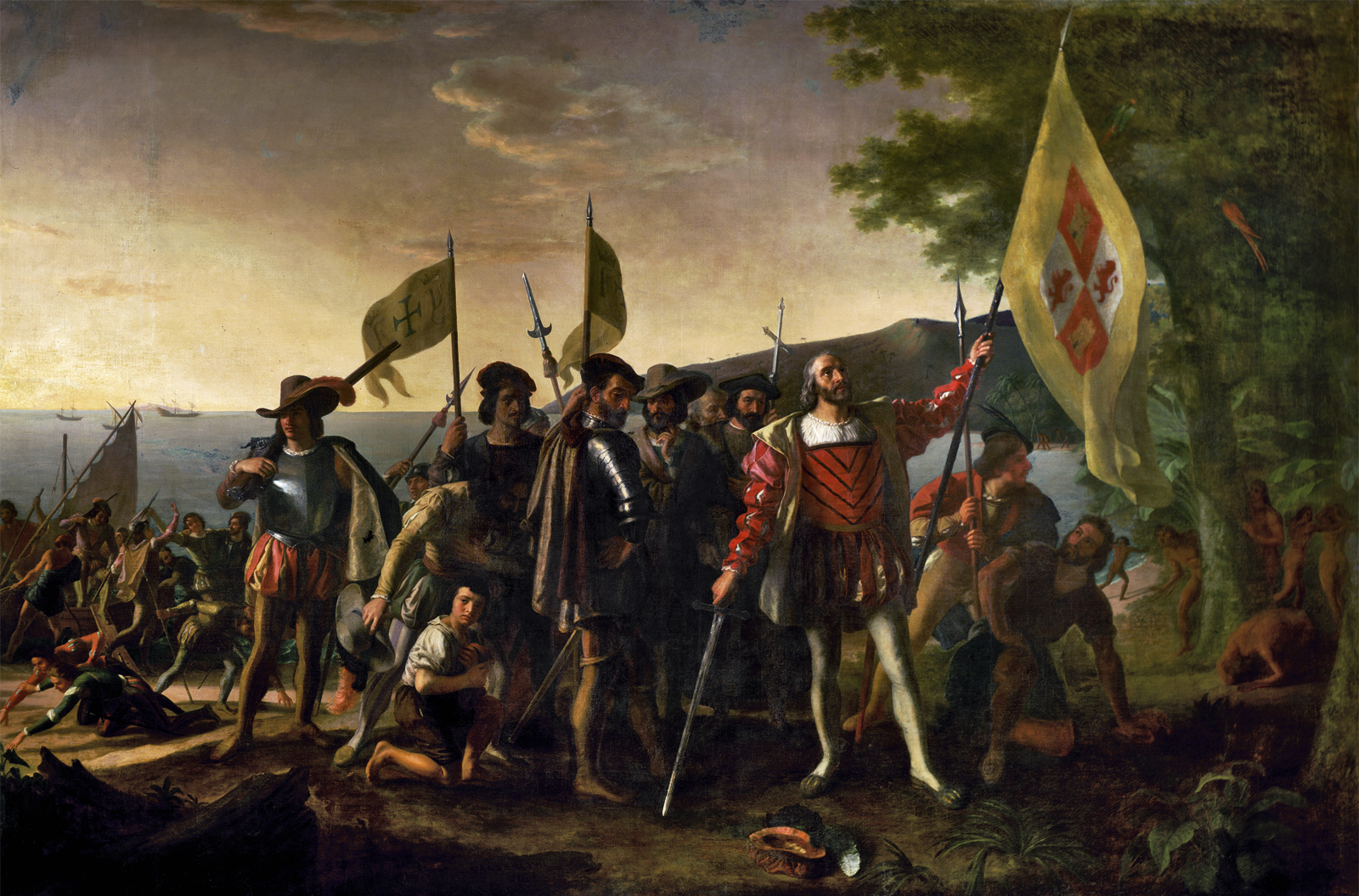Westerners were not the first people to migrate over vast reaches of water. Even before the Viking voyages in the Atlantic, the Polynesians had settled remote Pacific islands. But the Polynesians and other early migrants were not societies in expansion, but groups of individuals on the move. The expansion of the West was different. From its beginning in ancient Greece and Rome, records were kept, maps were made, and the nucleus always remained in touch with its offshoots.
Modern Western expansion, which began in the mid-fifteenth century, differed in four important ways from the expansions that had carried the cultures of the ancient Near East as far as western and northern Europe. First, this modern expansion was much faster and covered more ground. Most of the whole world was revealed to Europeans within the three centuries after 1450.
Second, this modern expansion was the first time Western society crossed great oceans. Ancient and medieval Western navigation had clung to the narrow seas and the shorelines; now Westerners crossed the Atlantic and the Pacific, far from the protecting land for weeks at a time. Third, this expansion carried Westerners well beyond the familiar orbit of relations with Byzantines and Muslims into relations with a bewildering variety of races, creeds, and cultures. Fourth, Europe possessed a margin of superior material and technological strength that enabled Western society to extend its influence around the world. An important element of that margin was the possession of firearms.
The strength by which Europeans overcame the world was a compound of technological and economic power plus political and social organization, which permitted superior military enterprise. This material advantage was applied by half a dozen competing Western nations, each quite willing to arm and organize the local population against its Western competitors. The French in North America armed the indigenous peoples against the British, and the British armed them against the French. In the Far East, the French, British, Portuguese, Dutch, Spanish, and later the Germans and Americans intrigued against one another. So great was the Western advantage that the rivalries of competing powers did not delay the process of expansion as much as stimulate and hasten it.
The motives for expansion were, of course, mixed. Though often moved by greed, by sheer despair over their lot at home, or by the Renaissance enthusiasm for new things, those who carried out the expansion were also convinced that they were doing God’s work, that they were carrying with them a better way of life. The acquisition of empire is usually laid to four primary motivations: the human desire for glory, the desire to serve God, the hunger for gold in all its forms, and the strategic need to seize certain areas or resources to achieve the other three ends. While specific empire builders may have held one of these motives uppermost, all were compatible.
The magnetic compass helped make ocean voyages possible. Without the compass, earlier mariners had been helpless, except when clear weather gave them sun or stars as guides. Not only were better instruments and better methods of determining a ship’s position at sea available by the fifteenth century, but shipbuilders were constructing vessels that were longer and narrower than the traditional Mediterranean ships and better able to withstand the long swells of the ocean.
Moreover, the rising political and economic power of the Atlantic states led their merchants to search for new routes to India, since the old Near Eastern route was controlled by the Ottoman Turks and by the Italians. Historians who interpret developments first in terms of economics also suggest that Renaissance Europeans discovered new worlds because the aggressive drives inherent in rising capitalism sent them on their way. Yet the explorations of the Europeans were also guided by the new spirit of empirical science.
Nothing makes more clear the consecutive, planned, deliberately scientific nature of these early modern explorations and settlements than the contrast with the sporadic, unplanned, and often mythical nature of earlier oceanic navigations. Tradition is full of tales of these early voyages. The Phoenicians, the Irish, the Norse, the Welsh, and Breton fishermen have all been credited with the “discovery” of America. Of all these tales of pre-Columbian discovery, that of the Vikings’ reaching the North American continent in 986 is supported by the firmest evidence.
There is no doubt that the Norse settled Iceland, that they had outposts in Greenland and that they founded a small settlement about 1000 at L’Anse aux Meadows in northern Newfoundland. Their heroic sagas credit Leif Ericson with reaching a Wineland (or Vinland), which almost certainly was somewhere along the present New England or Canadian coasts. Yet even if hundreds of Europeans reached the New World before Columbus, they did not establish a permanent link between the two worlds; they were not explorers supported by a state or a group of merchants expecting a full report, and they were, above all, not urged on by an organized social purpose or scientific expectation.

